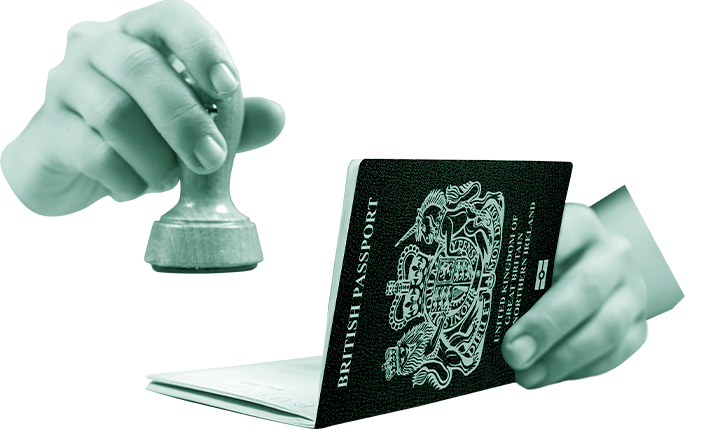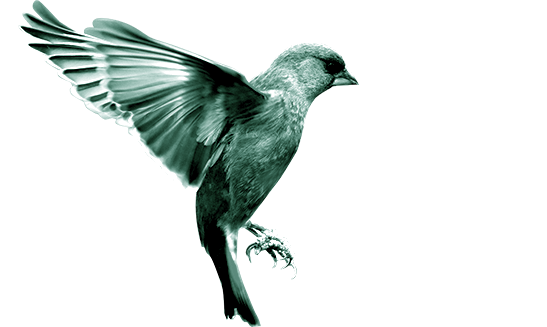Let's Talk

Need Help Urgently?
Call our 24 hour rapid response team now on 0333 311 1090
Request a callback
"*" indicates required fields


The UK has a lively creative sector. It draws in talent from all over the world. If you want to be a part of this exciting field, the Creative Worker visa is a great option. This visa lets you take temporary work in the UK. It is meant for people who have special skills and want to help the UK’s creative industries.
The Creative Worker visa is a temporary way to move to the UK. It is meant for people who have found short-term jobs in the creative sector. This is a great chance for artists, musicians, actors, and other creative professionals to share their talents and skills in the UK.
With a Creative Worker visa, you can work in the UK for up to 12 months at first. You may be able to extend your time here for another two years. However, keep in mind that this visa does not lead directly to permanent residency in the UK.
The Creative Worker visa is part of the UK’s immigration rules. It is for people who can show they can make a ‘unique contribution’ to the UK’s creative industries. This means they need to have skills and knowledge that are not easily found in the local workforce.
This visa has two main goals. First, it aims to improve the UK’s creative scene by bringing in talent from around the world. Second, it gives a proper setup for temporary work in the creative sector. Applicants must prove they qualify and follow the rules to get this visa.
The Creative Worker visa includes many jobs in the creative industries. It is not just for performers; it also covers those who work behind the scenes. Some jobs that this visa includes are:
This is not a complete list, and other jobs may also qualify for the Creative Worker visa. It is wise to check the official UK government website or get legal advice to understand the exact requirements for your job.

Applying for a Creative Worker visa means you need to meet certain rules set by the UK Home Office. These rules make sure that only people who really help the creative sector and follow immigration laws can get this visa.
It’s important to follow these rules for your application to succeed. It’s a good idea to get help from immigration lawyers who know about Creative Worker visas. They can help you understand the details of the process.
To apply for the Creative Worker visa, you need some more things, along with having a unique creative talent:
Remember, just having the right qualifications is not enough. You also need to show your experience and how you can make a unique contribution to the UK’s creative landscape.
To apply for the Creative Worker Visa, you need a Certificate of Sponsorship (CoS) from a licensed sponsor. This CoS includes details about your job, salary, and the start date. Your sponsor must provide a job in the creative sector that follows the Immigration Rules.
This document is important for your visa application because it shows that you can work in the UK under the Creative Worker route. Before you submit your online application, double-check that your CoS reference number is correct.
The application process for a Creative Worker visa is detailed and needs careful attention. It is important to gather all required documents and check that they are correct. This will help make your application experience easier and more successful.
Working with skilled immigration lawyers can make this process faster and raise the chances of getting a good result.

When you go to your biometric appointment, make sure to bring some important documents:

Showing that you have financial stability is very important for the Creative Worker visa application. This helps UK authorities feel confident that you can take care of yourself while you are there, without needing public funds.
It’s vital to give clear and complete proof of your financial situation to help make your application successful.
To show you are financially stable, you usually need to provide:
The UK government requires Creative Worker visa applicants to have enough money to support themselves. This money is called ‘maintenance funds.’ It is important so you can pay for your living costs without needing help from public services. The amount of money you need can change depending on where you are in the UK and if you are applying by yourself or with family.
Even if your sponsor says they will cover your costs on your Certificate of Sponsorship (CoS), it is a good idea to have some personal savings. This shows that you can be financially independent.
Knowing how long you can stay and the rules for the Creative Worker visa is important. This helps you have a smooth and legal stay in the UK. You must follow all the rules, as breaking them can affect your future visa applications. Staying updated on these details allows you to enjoy your time working in the creative sector in the UK.
The Creative Worker visa is usually valid for 12 months or the time stated in your Certificate of Sponsorship (CoS), whichever is less. This visa does not guarantee permanent residency. However, you can apply for an extension under some conditions:
The Creative Worker visa lets you work in the UK, but you need to remember some important rules:

If you want to stay longer and keep helping the UK’s creative industry after your visa ends, you may qualify for an extension. This depends on certain conditions you need to meet.
But, getting an extension is not certain. You need to plan and prepare well to improve your chances of success.
To extend your Creative Worker visa, you usually need to show the following:


When you apply for an extension, you will need to gather some new documents:
The Creative Worker visa does not provide a direct way to stay in the UK permanently. However, there are other immigration paths that might help you settle in the UK. Talking to experienced immigration lawyers who focus on UK options for creative professionals can guide you. They can help you find the best routes based on your specific situation.
To apply for indefinite leave to remain (ILR) under the Creative Worker Visa UK, you need to live in the UK for a set time, usually five years. You must show that you are dedicated to the creative sector and highlight what makes you special. It is important to meet the English language requirements and follow the immigration rules.
Keeping a clean immigration history is also crucial for a successful ILR application. Getting legal advice from immigration lawyers can help you through this process. Make sure you meet all the ILR criteria to stay in the UK’s creative industries.
Applying for ILR is an important step and takes a lot of work.
To get a UK Creative Worker Visa, you need to have a job offer from a UK employer. This employer must have a valid Temporary Work – Creative Worker sponsor licence. This licence allows them to sponsor you for this visa.
You also need to show that you plan to work only for this employer in the specific role you were hired for. Plus, you must meet certain financial requirements. These rules make sure you can support yourself while you are in the UK.
In order to get a Creative Worker Visa, you need a document called the certificate of sponsorship (COS). This paper comes from a licensed sponsor and shows that you qualify to work in the UK’s creative industries.
Your COS is important for your temporary work in the creative sector, as it highlights your unique contribution. To get this COS, your sponsor must show that there is no suitable settled worker for your job. Meeting this COS requirement helps make your visa application process easier and follows the immigration rules by the Home Office.
Meeting the financial needs for a Creative Worker Visa is very important for a successful application. You must show that you have enough money, called ‘maintenance funds,’ to support yourself during your stay without depending on public funds.
Usually, this means you need to give bank statements to prove your personal savings. This shows that you are financially stable and can pay for important costs like housing and living expenses. The amount you need can change based on your situation.
While there isn’t a strict English language requirement for the Temporary Work – Creative Worker visa, having some English skills can be helpful. Good communication in English is important for working and living in the UK.
Even though proving your English skills is not required for the visa application, it can help you communicate better with your coworkers. It can also make daily life in the UK easier and may improve your job chances.


A Temporary Work – Creative Worker Visa usually lasts for up to 12 months. It can also be for the time stated in the applicant’s Certificate of Sponsorship (CoS) if it is shorter. This temporary visa lets people live and work in the UK’s creative sector for a set time.
It’s important to know that this visa does not lead directly to staying permanently in the UK. Those wanting to stay longer must look into other visa categories. They will need to meet the eligibility criteria for those specific visa routes.
Under some conditions, Creative Workers currently in the UK might be able to extend their stay after their initial visa ends. If they still meet the eligibility requirements and keep their job with the same sponsor, they can apply for an extension of up to 24 months.
It is important to note that extensions are not given automatically. They depend on several factors, like following visa rules and immigration laws. It is a good idea to get help from a professional to go through the extension process smoothly.
The Creative Worker visa is a temporary work visa. It does not lead directly to permanent residency in the UK. This means people cannot automatically shift to permanent residency after holding this visa for a long time.
But, Creative Workers still have choices. They can look into other longer-term options, such as the Skilled Worker visa, to try to get indefinite leave to remain (ILR) in the UK. To switch to a different visa, individuals would need to meet the specific requirements and eligibility criteria of that visa.
Switching to the Creative Worker visa from another type of visa in the UK is usually not allowed. It is not a common way to move within the immigration system. Still, some exceptions might apply depending on personal situations and past visa approvals.
For example, if someone had a valid Certificate of Sponsorship (CoS) under the Creative Worker route before a certain date, and they were in the UK as a Standard Visitor doing allowed creative work, they might be able to switch. It is very important to get expert legal advice to understand these exceptions and check if you qualify.
When you get a Creative Worker Visa, you must follow certain rules about what you can do and where you can work while in the UK. These rules help ensure that you stick to immigration laws and meet the requirements of your visa.
A key rule is that you should work for the licensed sponsor who gave you the Certificate of Sponsorship (CoS). You can’t take a job with another employer or work more hours than allowed. Doing these things can put your visa status at risk.
A special rule is for people coming to the UK for short jobs in the creative industry. If someone does not usually need a visa to enter the UK and has a valid Certificate of Sponsorship (CoS) for a job lasting three months or less, they might qualify for the Temporary Work – Creative Worker Visa Border Concession.
This rule lets them travel to the UK without a visa and ask for permission to enter when they get there. In short, it makes it easier for the right people to come in for short creative projects in the UK.

The time it takes to process UK Creative Worker Visa applications can change based on a few things. These include the applicant’s nationality, how many applications are being handled, and if all needed documents are submitted correctly.
Usually, most applications get processed in about three weeks.
If you want to speed up the process, you can use priority services for an extra fee. For example, the Super Priority service aims to give a decision by the end of the next working day. This can be a big help for applications that need to be done quickly.
The Creative Worker Visa lets successful applicants bring their dependents, which include spouses or civil partners and children under 18, to the UK. Dependents must apply for their own visas and meet certain requirements.
These requirements usually involve showing proof of a real relationship with the main applicant. They also need to show they have enough money to support themselves while in the UK. Additionally, dependent children must meet the age rules. Each dependent’s application will be checked separately.

Experiencing a UK Visa refusal can be upsetting. It is important to know why it happened and what options are available. Some common reasons for refusals are not providing enough supporting documents, not meeting the eligibility criteria, or doubts about the honesty of the application.
If you get a visa refusal, you might have the right to reapply or appeal the decision. It is a good idea to get help from experienced immigration lawyers in these situations. They can help you understand the reasons for the refusal. They can also help you gather better evidence and guide you through the appeals process.
Switching straight from one visa type to a Creative Worker Visa while in the UK is usually not allowed by standard Home Office rules. It is important to talk to immigration lawyers to get legal advice. They can help you figure out if you qualify for any exceptions or different options.
If your Creative Worker Visa application gets denied, you might have ways to reapply or appeal the decision. It is a good idea to talk to immigration lawyers. They can help you understand why your application was refused. They can also help you find the best steps to take next.
Yes, people who have a creative worker visa can often bring their spouse or partner and children under 18 to the UK. Family members must apply for their own dependent visas when the main applicant submits their visa application.



Call our 24 hour rapid response team now on 0333 311 1090
"*" indicates required fields
"*" indicates required fields